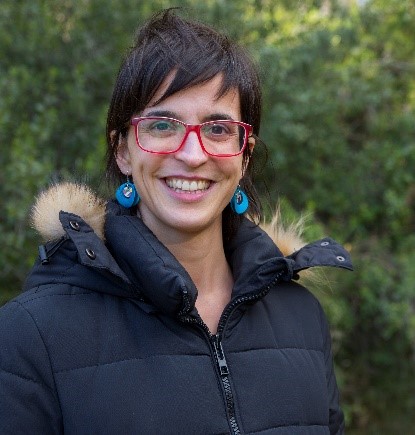Science and photojournalism, united by the deforestation of tropical forests
Under the name PRIMARY, a documentary journalism project focused on imported deforestation of tropical forests was born. The project, led by the photojournalism organization RUIDO Photo, has the advice of the CREAF research center.
PRYMARY aims to illustrate and raise awareness in society about the impacts of deforestation on the climate, as well as to investigate its causes, putting under the magnifying glass the consumption patterns of the Global North and its relationship with the deforestation of the Global South. All this with special emphasis on the impact of this deforestation on indigenous communities living in primary tropical forests. Hence the name of the project: PRIMARY. The search for and representation of the threat posed by these forests through people who are born, live, and suffer the effects of globalization and unsustainable consumption . A photographic and social and environmental awareness trip through Brazil, Congo, Thailand and Indonesia that will see the light of day in mid-2022; four example cases that seem distant, but through PRIMARY we will see how it involves us.
The aim of RUIDO and CREAF is to study the relationship between consumption patterns in the Global North and deforestation of forests in the Global South, to understand the negative impacts of this deforestation and to explore alternatives or focus on transforming those actions, policies or regulations that may contribute to the issue.
From the jungle to consumption in Catalonia Tropical primary forests are home to no less than two-thirds of the world's biodiversity . At the same time, they act as regulators of the planet's temperature and are one of the most important carbon sinks in the world. Despite this crucial role, they have not been able to remain intact, nor have they been protected from the destruction and threats of the unsustainable development of a very specific part of the planet. This fact highlights a huge environmental injustice , where half the world is developing at the expense of the exploitation of natural resources of the other half and, in doing so, also endangers our own future, because of the climate implications or loss of biodiversity it entails. Today, this fact affects not only the future, but also the present of the indigenous communities living in these jungles.

This project offers a new channel for CREAF and a new experience to adapt and transmit information about the key relevance of these ecosystems in the functioning of the entire planet and in our own subsistence as a species. We hope that the materials that are generated around this whole macro-project will be a useful tool for society and that they will raise awareness, generate behavioral changes and political changes.
ANNA RAMON, CREAF's Communications director.
In fact, PRIMARY is a challenge because of the scope of the topic, but also because of the innovation in its approach , where science and photojournalism meet to work together on this common challenge. The initiative is led by the organization RUIDO Photo, which carries out the journalistic research project in this regard and has traveled to four parts of the world to take pictures of what is happening in these communities, but has CREAF as an advisory center. CREAF , for its part, provides scientific knowledge about rainforests and their role in regulating climate, water, or biodiversity supply, for example, and It will be complemented by rigorous outreach materials that serve to influence the policies and society that will develop the communication department research center.
Despite the primary role of tropical primary forests, they have not been kept intact or protected from the destruction or threats of unsustainable development of a very specific part of the planet.
The common goal will be to study the relationship between consumption patterns in the Global North and deforestation in the Global South , understand the negative impacts of this deforestation, and explore alternatives or focus on transform those actions, policies or regulations that may contribute to the issue. To this end, in addition to preparing the documentary photographic report, the associative and movement fabric of the field of environmental justice in Catalonia will be strengthened, carrying out an exercise of awareness and training of the people who are part of it. There will also be an awareness, training and advocacy campaign to help improve the knowledge of the general public , young people, other entities in the fields of social and solidarity economy, food sovereignty, environmental justice and public administrations .






